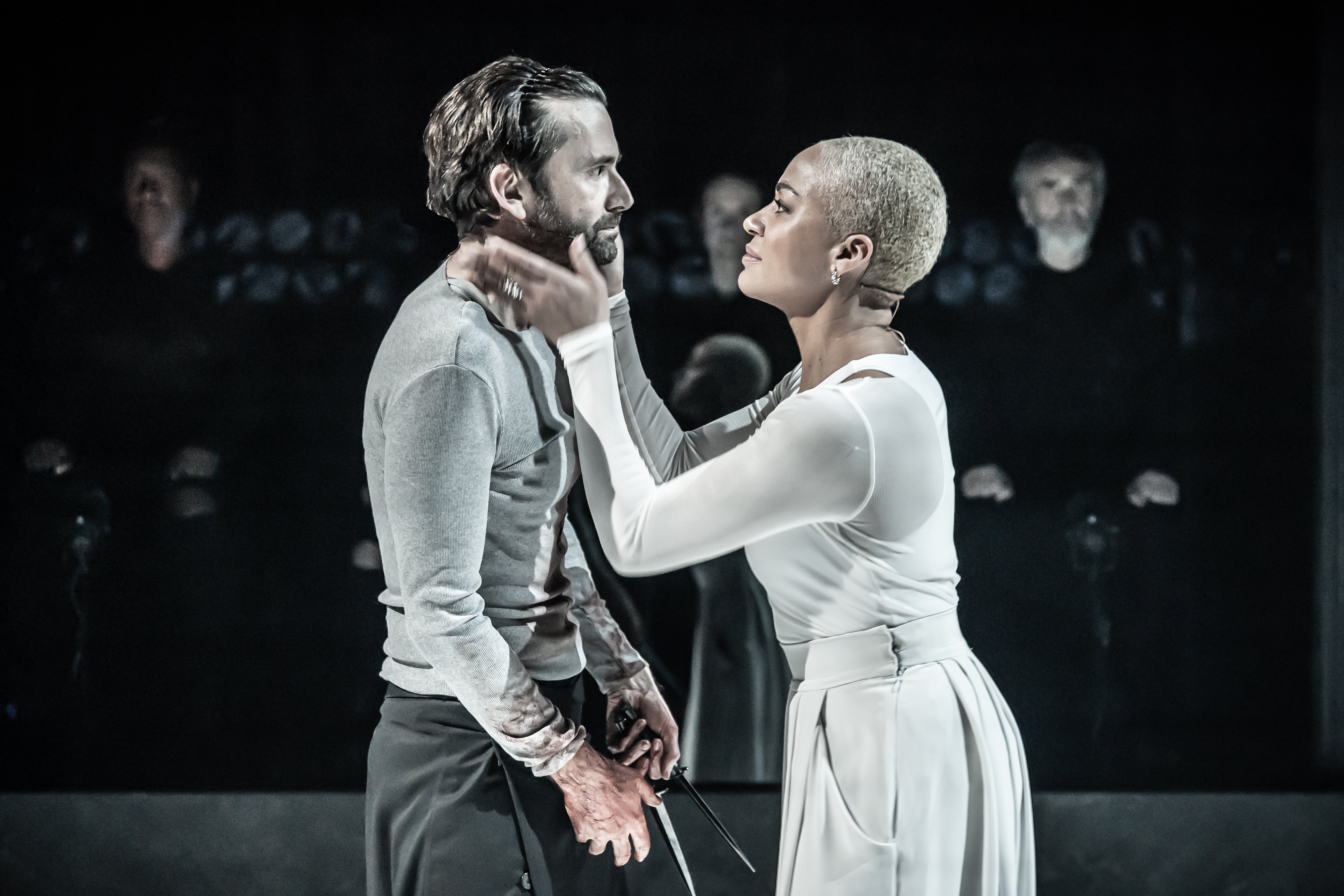Macbeth review: David Tennant is a compellingly intense Scottish king in Donmar’s show of sonic trickery
Lady Macbeth’s whispers crackle in your ear as audience members wear headphones in Max Webster’s intimate production, but the sound design can sometimes feel like a distraction

The tiny-but-mighty Donmar Warehouse’s production of Macbeth sold out at lightning speed, and no wonder. Who wouldn’t want to be just metres away from huge-name talents David Tennant and Cush Jumbo as they plot grimmest, bloodiest murder? But although this is a towering pair of performances, restrain your FOMO: Max Webster’s tricksy, headphone-based production doesn’t fully channel the dark magic of this intimate space.
“You put your nice claes [clothes] on to see a radio play!” jokes the hilarious Jatinder Singh Randhawa, mocking the audience in broad Scots in his convention-shattering take on the Porter scene. He’s exaggerating, of course. Webster’s staging is hugely striking to look at, its 21st-century Scottish clansmen glimpsed brooding through swirls of haze, clad in Alexander McQueen-esque black kilts and asymmetrical tailoring. Jumbo is mesmerising as Lady Macbeth, her stillness and composure suggesting hidden depths of insanity, her moral compass shattered. And Tennant makes a compelling Macbeth, all restrained, troubled intensity as he steps further and further into a swamp of bloodied ambition.

But even so, sound wins over visuals here. The whole audience wears binaural-sound headphones, which magnify every whisper: Jumbo’s hissed command to “screw your courage to the sticking place” rustles in your ears, bringing you to the heart of their private conspiracy. It’s arresting, but even so, it’s a device that would make more sense in a massive West End barn of a theatre than in this 251-seater space.
Too often, this production’s sound design feels like a distraction, drawing on an overfamiliar radio drama-style palette of haunting whispers and cawing crows. A fine Scottish band is walled off behind glass at the back of the stage, muffling their music’s ability to stir up this audience.

Still, set aside the sonic trickery and this Macbeth is a revelation in other, quieter ways. It heightens the play’s focus on grieving lost children, with one boy playing all the young characters as though he’s conjured from Macbeth’s memory – his own dead son, returned to torment him. He inhabits a fevered world where reality is shifting, untrustworthy: its famous witches are the “wayward”, not the “weird” sisters, visions too nebulous to be grasped at (except during this production’s lumbering physical theatre interpretation of their famous “double, double, boil and trouble” chant).
This is an intimate take on Macbeth that drags us right into the head of its tormented anti-hero: sometimes successfully, sometimes less so. But its most powerful moments deserve to be shared with a much, much wider audience.
Donmar Warehouse until 10 February



Join our commenting forum
Join thought-provoking conversations, follow other Independent readers and see their replies
Comments